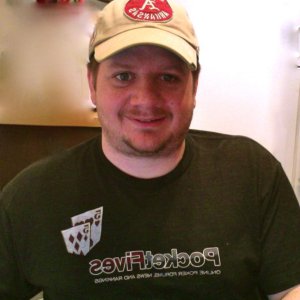To Chop or Not to Chop?

 Let’s see if any of these statements sound familiar. “I chopped with you last time!” “If you don’t chop, I will never chop with you again!” “Why not chop? We can get almost third place money!” In this article, I want to break down chopping in tournaments and talk about understanding other players and their reasons to chop or not chop.
Let’s see if any of these statements sound familiar. “I chopped with you last time!” “If you don’t chop, I will never chop with you again!” “Why not chop? We can get almost third place money!” In this article, I want to break down chopping in tournaments and talk about understanding other players and their reasons to chop or not chop.
Any time a player signs up for a tournament, they should be doing so because they think they can make a return on their investment or want to be entertained. Obviously in poker, there are several recreational players who play tournaments as a hobby. These players are often less interested in winning and might be more than happy with a chop, even when they are the chip leader.
For the rest of us who play tournaments to make money, winning should be sought after and chopping should only happen when it is in our favor. The money is in the top three spots in almost every MTT; we need to maximize our opportunities to get into the top three, not chop them away.
Poker is a game where no one hand, session, or tournament should matter. The goal is to make the best decisions possible and put us in positive expected value situations. If we are playing poker to make money, then that is what we should try to do. Any time we get to a final table with a decent stack, we should try to maximize our profit. Chopping because everyone wants to, chopping because of peer pressure, or chopping for any reason other than our own return on investment is a mistake.
Unless the tournament you are considering chopping is the last one you will play, you need to think about your decision and how it would affect you if presented with it 100 times. For example, let’s say you are second in chips with five players remaining and decide to chop even. If you played it out 100 times, you might win it a decent percentage of the time, place second through fourth some, and go out in fifth some.
I totally understand the spot players get into when they reach a final table and there are two or three other locals they know. One or two of them might be short and putting pressure on to chop, and all of the general phrases come out. But, I will tell you if you stand up for yourself and let everyone know your intentions, it blows over quickly.
I always tell the table I do not like to chop. I also let them know I will never get upset if they do the same. I occasionally explain that when I sign up for a tournament, it is to get the best return on investment I can, and chopping is often not the way to get the best ROI. I try to only chop when it is in my favor.
We also need to know that understanding chops provides a huge advantage in tournaments. The ability to work out chops when we are short, work them in our favor if we have chips, or to turn down chops if there are a lot of short stacks can make a huge difference to our profit in the long-run. Just like in any poker hand, when thinking about chopping, we need to know everyone’s stack sizes and tendencies and then use that information to make the best decision.
I will say that if you are playing some type of a home game or your local player pool is very small and full of your friends, there may be reasons to want to chop. If your local room is small and all the regulars are your friends, I can see chopping with them if you are there more for the camaraderie more so than the profit. But, in these instances, it is important to understand that these decisions put playing and friends above profit. For a lot of recreational players, that makes more sense to them and I have no problem with that.
I hope that recreational players start to realize that everyone is different and chopping is not a requirement. If a player chooses not to chop, respect their decision. If a recreational player runs into a non-chopping player, I hope they can try to understand that it’s okay to buy into a tournament and try to win it.
It is also important for recreational players to understand that a non-chopping player has been playing with a non-chopping mindset throughout the entire tournament. For example, most non-chopping players will be playing to win, not min-cash. So, they are likely to be active on the bubble and will usually not be caught blinding away. Therefore, a non-chopping player is generally taking risks to win that a tight recreational player is not.
If this non-chopping player then chose to chop, they would not be getting rewarded for their play and would lose value by not trying to win. In my opinion, it is best to sign up for tournaments with the intention of winning. I also think a player should never chop unless it is in their favor. Good luck all!
This article was written by John cracker9ball Reynolds, who hails from Tulsa, Oklahoma. If you are interested in taking poker lessons or would like any information, contact him at variance101@gmail.com or visit Variance101.com.




